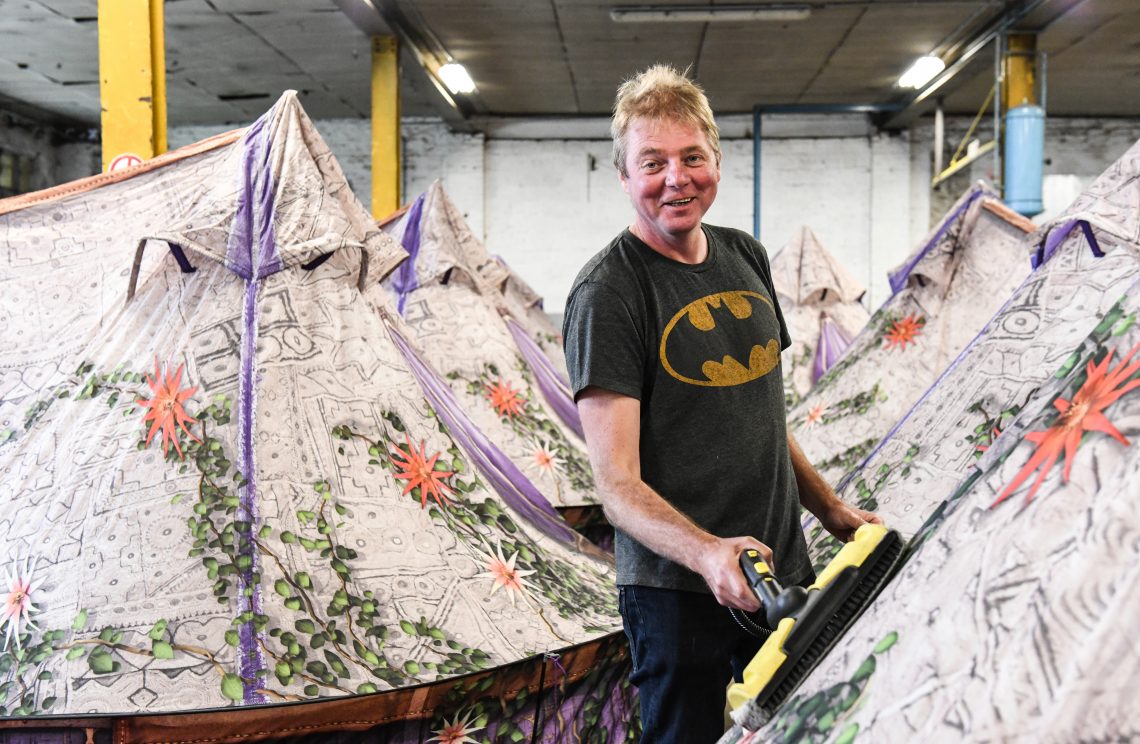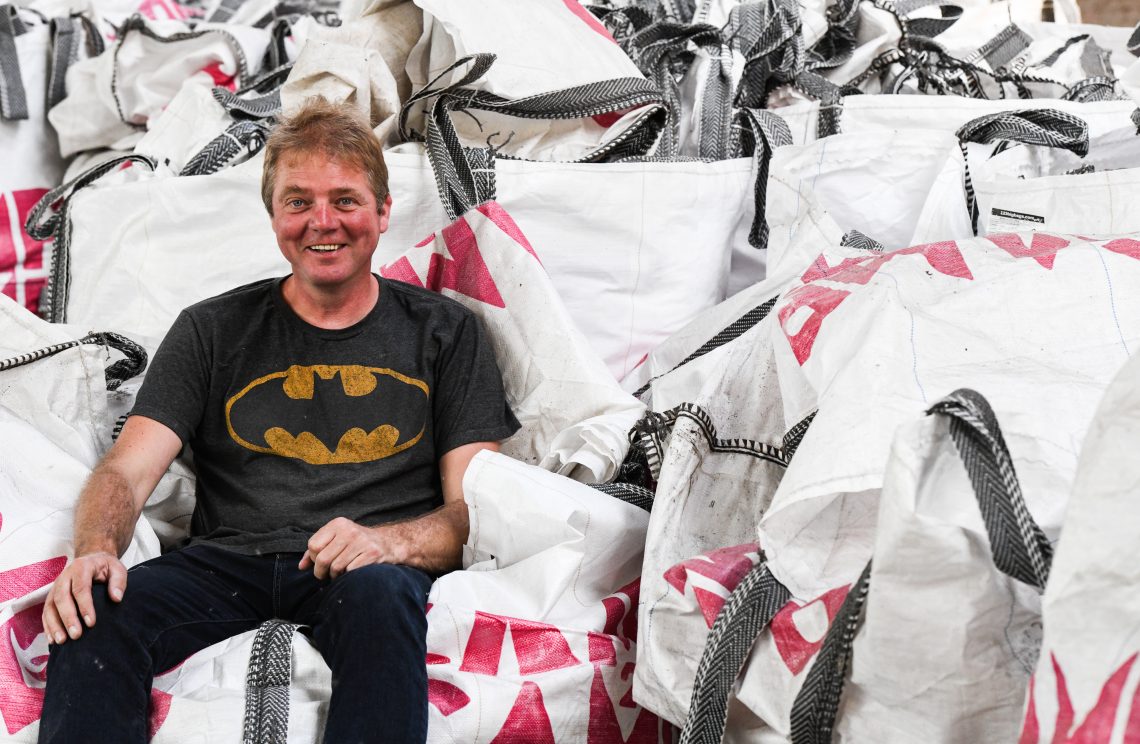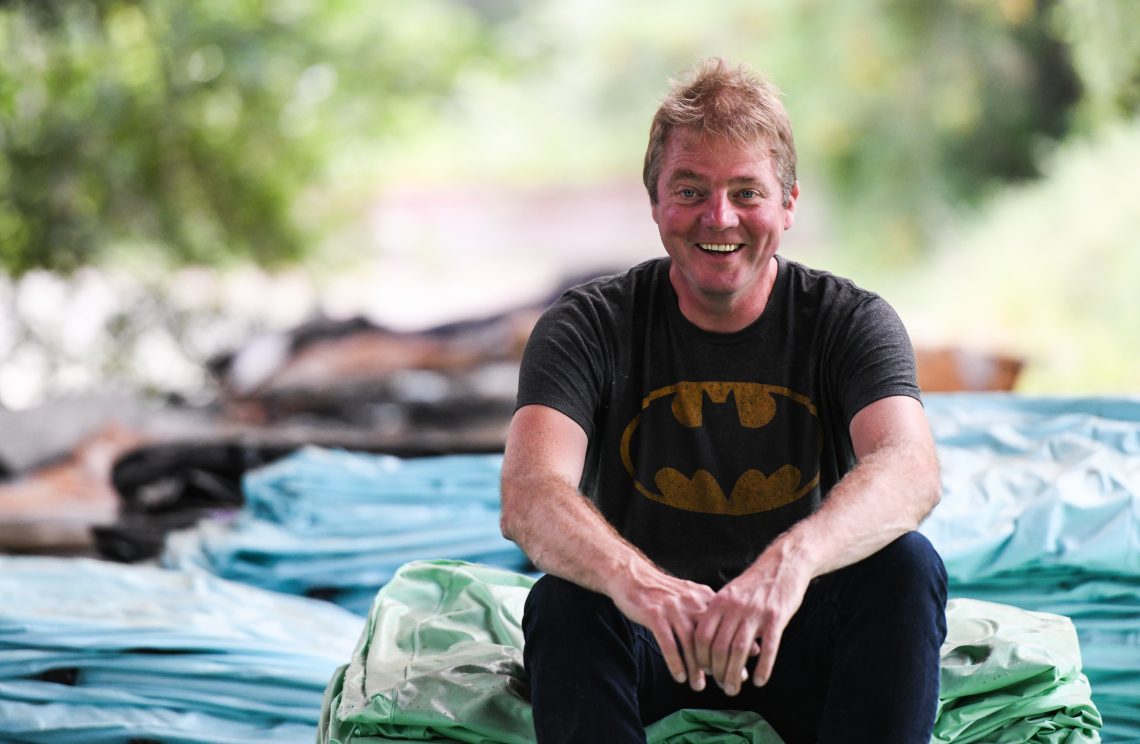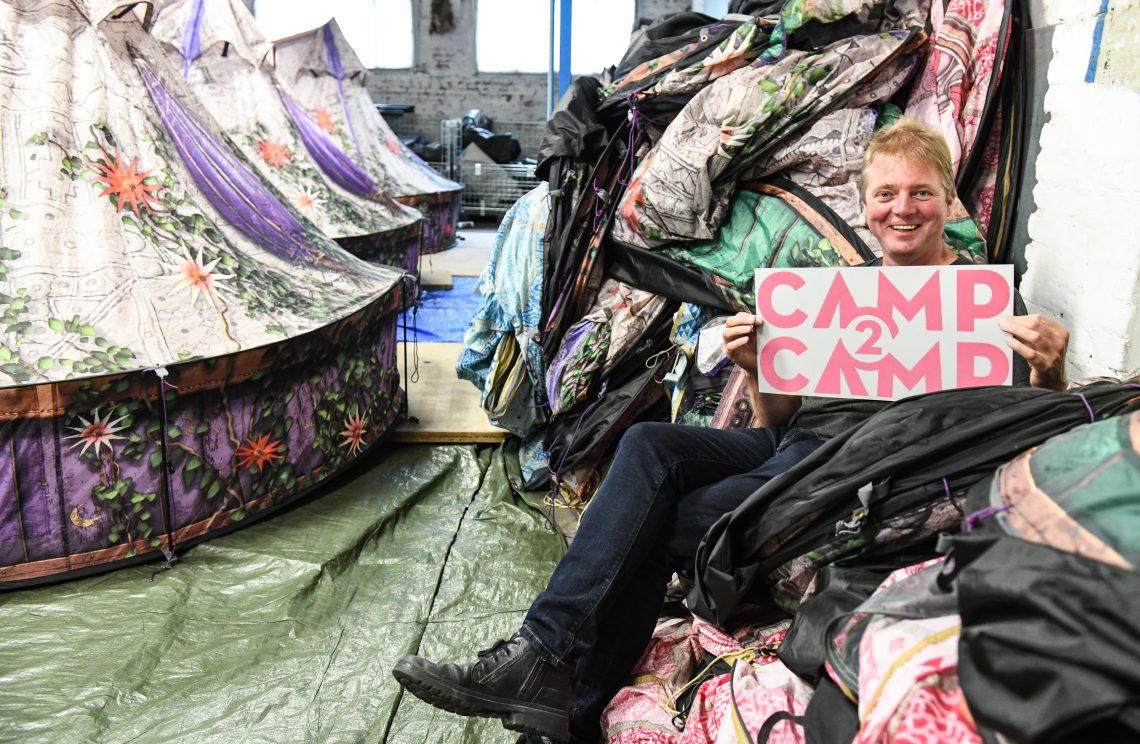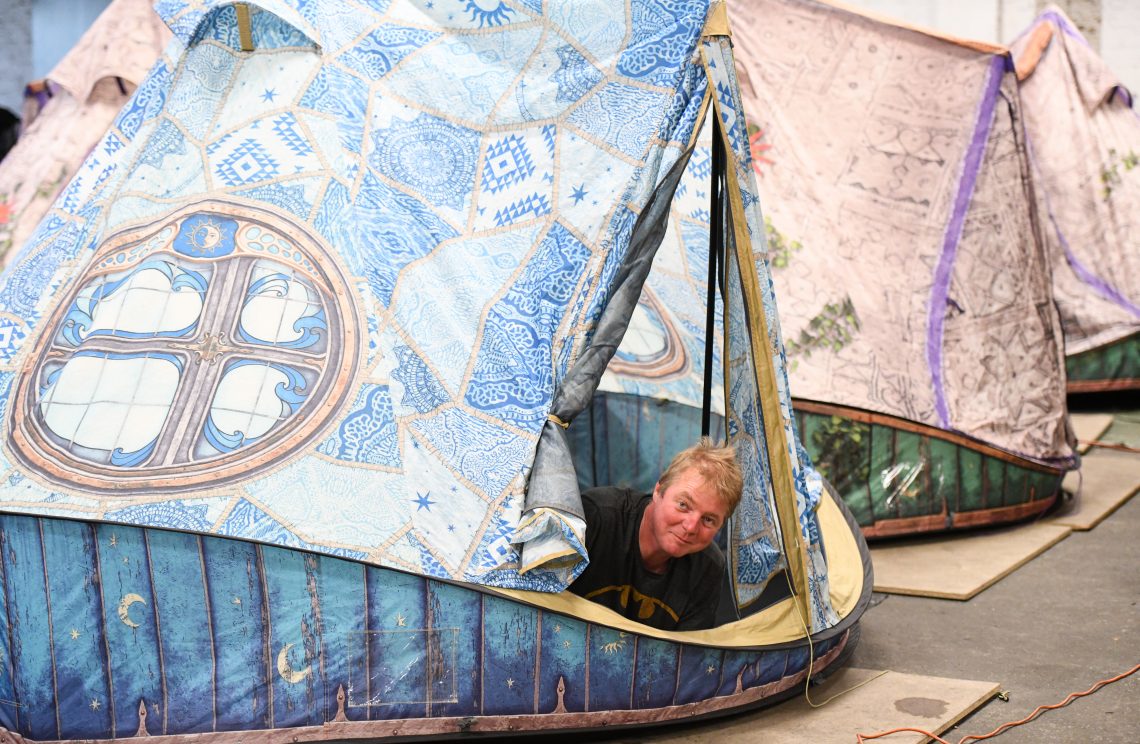Some of the biggest music festivals have gained a reputation for their often huge environmental footprint, no less when it comes to the camping gear that is often abandoned after the festivities are over.
But through the Camp2Camp project, Kris Bauwelinck and his team from the Mechelin-based non-profit organisation ‘The Value Factory’ are on a mission to ensure that the tents and sleeping bags left behind by revellers do not end up in landfill.
“The day after the Tomorrowland festival when partygoers have returned home, myself and my team of volunteers pass through the Tomorrowland campsite and collect all abandoned camping gear. ECOSO then sorts and cleans the various items, such as sleeping bags, inflatable mattresses, camping chairs, and tents, so they can be rented to future festival-goers or sold in one of ECOSO’s ‘kringwinkels’ [second-hand shops].”
Where reuse is not possible, the camping gear is remanufactured. A tent can become a reusable bag, a mosquito net, a child’s rain poncho, a bicycle seat cover, or a craft apron for example. Those products are then also sold in ECOSO’s second-hand shops. Material such as sleeping bags are also donated to homeless people and refugees. The textile industry and fashion sector should use more sustainable materials so recycling would become easier. All the different polyamides used make the reuse more difficult.
Kris explains that another key challenge in developing the project is the competition between festivals in Belgium.
“Often festivals don’t want to work with a project that also works with one of their ‘rival’ festivals but I cannot set up a new organisation for each festival!” says Kris. “Ideally all festivals would be happy to work with us. Another challenge is working with companies that are still in a ‘greenwashing’ mindset and who don’t prioritise doing things that generate social and environmental value when the economic value created is low.”
Camp2Camp wants to see festivals become more and more circular where people rent their camping gear rather than using them once and creating waste.
Most of the second hand textiles that are not sold in the second hand shops end up in Africa via Pakistan. For Kris it is also important to foster the local economy when it comes to reuse. He explains that if he sells textiles for export he will receive 10 cents per kilo, whereas it actually costs him money to resell on to local entrepreneurs. But he insists that this is preferable for him as he is creating a different kind of value. “I believe in the importance of the sharing economy and exchanging ideas.”The hardest part of the work for Kris is encouraging volunteers to retrieve all the materials left after the Tomorrowland festival as it can be really discouraging to see such a desolated scene with so much abandoned material.
“Camp2camp works with many young people. It’s important for me that each person can discover their own talents and what each person wants to do even if it’s outside this project. The target group is very broad and it is not only for school leavers or young people who have difficulties getting a job. Everyone is welcome. It’s important to work with others such as volunteers, producers, and public institutions. It’s important for me to enjoy my work and also do something useful for people and planet.”
camp2camp.be/

Belgium

